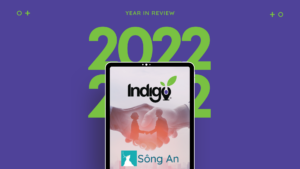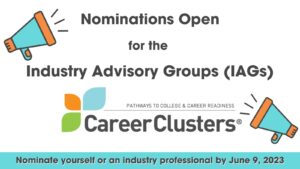Celebrate with Us! Cheers to Indigo’s 10-Year Anniversary
MESSAGE FROM THE CEO INVITATION TO CONNECT AND HELP BIG ANNOUNCEMENTS HELPFUL LINKS SHERI’S NEW BOOK NOTE OF GRATITUDE Message from the CEO Upon reflecting
MESSAGE FROM THE CEO INVITATION TO CONNECT AND HELP BIG ANNOUNCEMENTS HELPFUL LINKS SHERI’S NEW BOOK NOTE OF GRATITUDE Message from the CEO Upon reflecting

Step into a world of empowerment and collaboration as Indigo and Song An shape the landscape of education and career counseling. Our 2022 Year in

We are thrilled to announce that Indigo Education Company and WestEd, in partnership with Advance CTE, are teaming up to lead the initiative in modernizing the National Career Clusters
Indigo is excited to share some of our data findings working with ALAS’ Superintendent Leadership Academy.

BOSTON, May 7, 2019 /PRNewswire/ — LearnLaunch Accelerator is thrilled to announce its latest round of investments and unveil the four edtech companies selected for its highly competitive Breakthrough Program.

In his book, The End of Average: How We Succeed in a World That Values Sameness, Harvard scientist Dr. Todd Rose examines the idea that there is no average person and that by ignoring individual differences – and what makes us each distinctive – we overlook potential and talent. The End of Average not only shows that there is no average person but also demonstrates the importance of nurturing traits that define each of us
aesthetic AI asking awards college fits Communication compliance continuous learning creativity DISC dominance Education empathy Empowering Educators FBLA future of education goals Indigo Indigo Assessment Indigo Data Indigo Education Company individualistic influencing leadership LearnLaunch Listening mentoring Motivators Partners Peak to Peak High School Personalized Learning persuasion planning Podcasts Professional Development self-awareness social soft skills Speaking Engagement steadiness team Teamwork theoretical TTI utilitarian